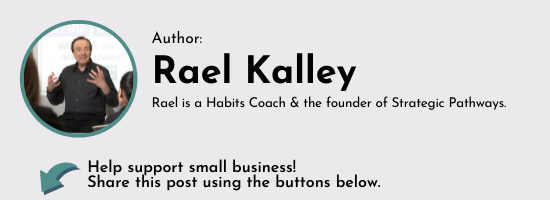Conflict: It’s in the Eye of the Beholder
Conflict! It’s part of our lives whether we like it or not.
We don’t begin each day hoping that conflict will present itself and, most of us, given the opportunity to never have to deal with conflict, would seize it gladly with both hands.
And so, the question facing us when confronted with conflict is this: am I the cause, a contributor or merely an innocent subject?
If the conflict involves you then the simple answer is yes, you are the cause or a contributor.
Conflict is Not About Blame
I don’t mean that by way of assigning blame or invoking guilt but rather as a simple statement of fact.
What I mean is this: In the eyes of the person or people with whom you are in conflict you are completely at fault and they are the wronged party.
Conflict is mostly about perspective and seldom about fact. The “other side” wouldn’t be in conflict had they interpreted something you said or didn’t say, did or didn’t do in a different manner.
Conflict is rarely the result of something that happened. It is instead the result of the meaning which one or more people placed upon a given event.
It could be triggered by a voice tone, an expression, the absence of an anticipated result or a myriad of other reasons.
And almost all conflict has the same cause. Conflict arises when expectations are not met.
As you may recall, we’ve talked about how the only meaning of any event in our lives is that meaning we choose to place upon it. And this is equally true of all interactions with others.
That is why I said earlier that regardless of the reason for the conflict, in the eyes of the other person or persons, the fault lies squarely with you.
And you, of course, may well be of the opinion, based on the meaning that you have placed on the event, that all fault and blame rests with “them.”
That being said, there is much to be gained through introspection. We may be surprised at our answers when we ask ourselves questions like “How may I have contributed to this conflict, and what could I have done differently?”
The old adage that tells us there are always two sides to a story is incomplete in that it does not take into account that the more people involved in the conflict the more sides there are.
Truth lies only in our interpretation of events and facts are only those things that we believe to be true.
If resolution is important enough to us, we will reach out to the other parties in hopes of gaining understanding. If, in reaching out, our intention is to prove to them how wrong they were, my best guess is that we will now have a whole new conflict to deal with.
The interesting thing about expectations is that we tend to believe that others should know what ours are, and then conduct themselves accordingly.
The Double Standard in Conflict
There is also an enormous double standard in the way in which conflict arises. We judge others by their actions – those things they do or don’t do, say or don’t say – and we judge ourselves by an entirely different standard.
We judge ourselves by our intentions. This allows for conflict to often make no sense to us as we are surprised by the response from others when we are very clear of our intentions.
So yes, in their eyes it’s always you, and in yours it’s always them.
Which tells me that as important as it is to develop strong conflict resolution skills, it is perhaps even more important to learn how to manage and influence our own perspective.
And by so doing, we are also accelerating the speed of development of our own conflict resolution capabilities.
Two for the price of one is always a good deal.
Till we read again.


